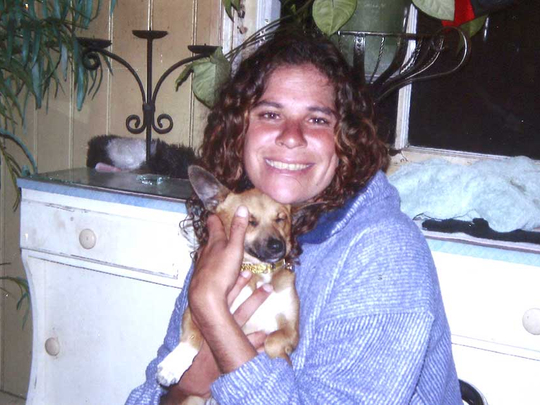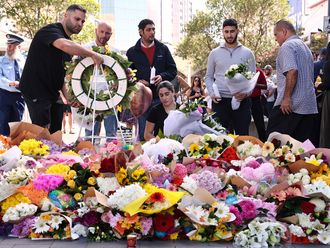
SYDNEY: More than six years after an Aboriginal woman bled to death from a violent sexual assault on a remote beach, a jury convicted two men on Wednesday in connection with her death in a case that horrified Australians and exposed the nation’s deep racial divide.
After a five-week trial at Coffs Harbour Supreme Court, a jury took less than one hour to convict Adrian Attwater of manslaughter and aggravated sexual assault in the death of Lynette Daley. His co-defendant, Paul Maris, was found guilty of aggravated sexual assault and hindering the discovery of evidence.
Daley, a 33-year-old mother of seven, died in 2011 after Attwater and Maris drove her to an isolated beach in New South Wales, where she was subjected to a sexual assault so vicious, a forensic pathologist dubbed her injuries worse than those which occur in even precipitous childbirth.
Despite calls from a state coroner and police to prosecute Attwater and Maris, it took prosecutors more than five years to agree to try the men for the killing. Prosecutors only decided to move forward with the case last year, after media reports of her death prompted widespread public outrage and accusations that officials didn’t care about Daley because she was Aboriginal and her assailants were white.
Prosecutors have never publicly explained why it took them so long to bring the case to trial, but Daley’s family has always believed it came down to the colour of Lynette’s skin.
“It was a long fight, a long struggle,” Daley’s stepfather, Gordon Davis, told The Associated Press after the verdict. “Let the world know there was justice for an Aboriginal woman.”
The brutality of Daley’s death and the lack of swift justice rattled Australians, who have long struggled to address the centuries of suffering endured by their country’s Indigenous population. Aboriginal people make up around 3 per cent of Australia’s population of 24 million people, and suffer from high rates of poverty, imprisonment, unemployment and poor health.
Attwater and Maris never denied being with Daley when she died during a camping trip to desolate Ten Mile Beach. But they denied responsibility for her death, saying she’d been a willing participant in what they dubbed “wild sex” inside of Maris’ truck. An autopsy, however, showed Daley’s blood alcohol level was between 0.30 and 0.35 per cent — high enough to leave her severely incapacitated and, prosecutors said, utterly incapable of consent.
Attwater said Daley later collapsed in his arms as they walked towards the ocean.
Prosecutors said Daley was probably dead or dying when Attwater dragged her into the ocean to wash blood off her body. Maris set fire to the blood-soaked mattress from the back of the truck, along with Daley’s bloodstained bra, before calling paramedics.
Shortly after Daley’s death, police charged Attwater with manslaughter, and Maris with accessory after the fact. But a few months later, prosecutors dropped the charges, telling Daley’s family they couldn’t prove the men intended to hurt Lynette. The family was baffled, given that a charge of manslaughter does not require proof of intent.
A state coroner then agreed to hold an inquest, a court-like proceeding convened after unusual deaths. He found that Daley had died of blood loss caused by blunt force genital tract trauma inflicted by Attwater. The coroner determined there was a reasonable prospect of securing a conviction and referred the case back to the prosecutors.
Yet for a second time, prosecutors declined to press charges, saying there wasn’t enough evidence.
Media coverage of the case followed, prompting public outrage. An online petition demanding the head prosecutor justify his actions gathered tens of thousands of signatures. Finally, last year, prosecutors agreed to bring the case to court.
After their yearslong battle for justice, the jury’s quick verdict felt surreal for Daley’s family, who wept in the courtroom.
“This is a step in the right direction against all the violence against women,” an emotional Davis said after the verdict. “Not only for Aboriginal women. It’s a big thing for every woman, every woman — no matter what colour or creed.”
Attwater and Maris will be sentenced on November 3.












